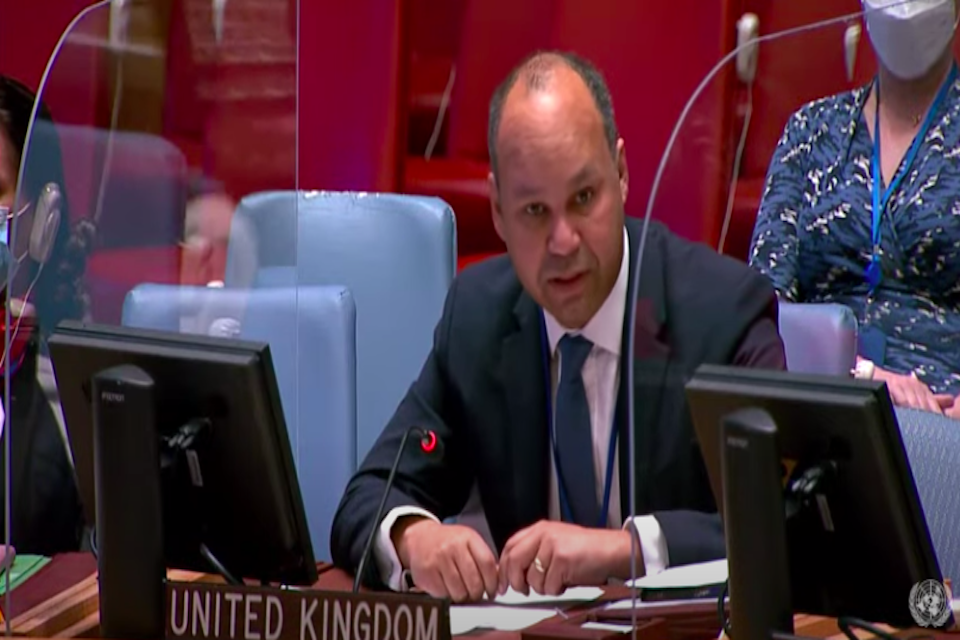Protecting civilians from the increasing urbanisation of conflict
Statement by Ambassador James Kariuki at the Security Council Open Debate on the Protection of Civilians in Urban Settings

Thank you very much, Prime Minister Støre, and our thanks also to the Secretary-General, Mr Maurer and Ms Al-Mutawakel for their briefings. The United Kingdom is grateful to Norway for convening this important event — this importance is reflected by the presence of the Vice President of Ghana and the Foreign Minister of Gabon.
As we have heard today, civilians are paying a heavy price for the increasing urbanisation of protracted conflict. All too often civilians find themselves the victims of terrible violations of international humanitarian law, as witnessed during the appalling barrel bombing campaigns in Syria, and in conflicts seen in Yemen, Ethiopia, Mali, and elsewhere, which have caused devastating suffering and long-term effects.
Full adherence to international humanitarian law is fundamental to the protection of civilians. Compliance is not an aspiration – it is an essential legal and moral obligation. Operating in an urban environment is difficult and dangerous, but those doing so must take all feasible precautions to minimise harm to civilians and damage to infrastructure. If a military operation cannot be conducted in compliance with the law, it must not take place. The international community can and must do more to assist, and pressure, states to protect their civilians.
How do we achieve this? First, we must engage more purposefully in the sharing of best practice to help all parties to conflict enhance their compliance with international humanitarian law. The United Kingdom has long provided specialist training to the armed forces of other states, including forces deployed in MONUSCO, MINUSCA, and AMISOM, to help build understanding and compliance.
Second, non-state armed groups need to understand their obligations under International Humanitarian Law and the importance of compliance. The United Kingdom supports organisations such as the International Committee of the Red Cross working to increase awareness. And we are also supporting research to improve our understanding of why non-state armed groups do or do not comply, and to identify approaches to improve adherence.
Third, we must work to ensure that those responsible for breaches of international humanitarian law are held to account. There can be no impunity for crimes committed in conflict.
So I want to welcome the work that is being led by Ireland to seek a political declaration on the use of explosive weapons in populated areas. The United Kingdom is committed to this process. It must serve to increase the protection of civilians without hindering legitimate and proportionate military operations in urban areas.
Mr President, I would like to underscore the United Kingdom’s own unwavering commitment to the full implementation of, and compliance with, international humanitarian law. Our defence policies have practical measures to protect civilians integrated at every stage of the operational process. We will continue to encourage others to do likewise, share best practice and condemn those who fail to meet their obligations.
Thank you, Mr President.